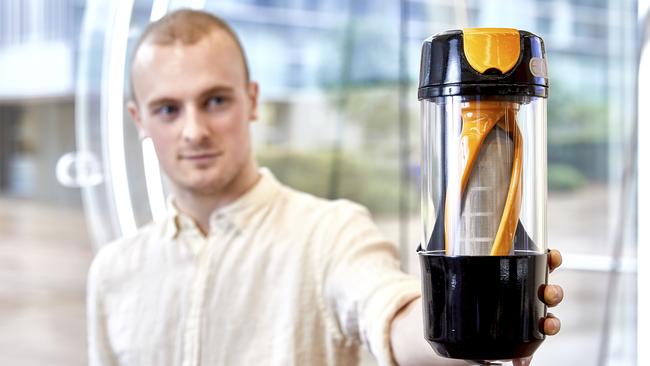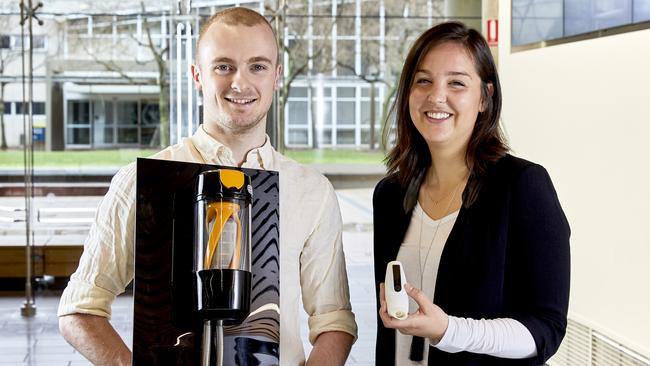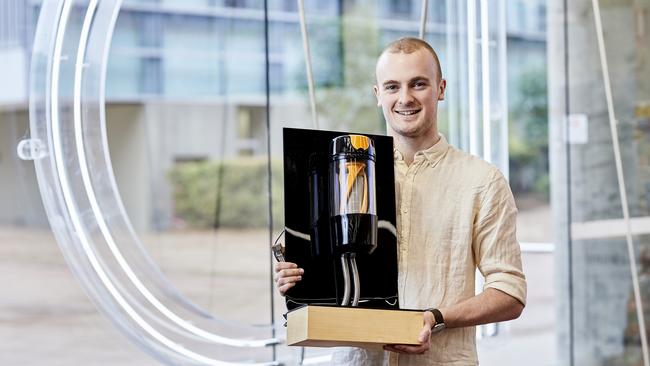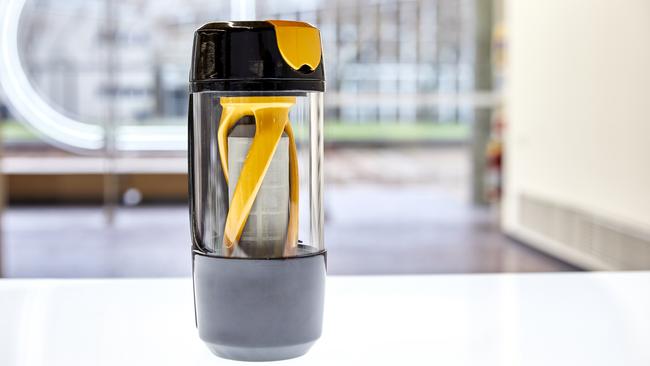Praise for UNSW student’s invention to stop plastics reaching ocean
A young inventor from the University of NSW has received high praise for his invention which stops microplastics being drained into the ocean from washing machines and is now in the running for a $55,000 prize.

Southern Courier
Don't miss out on the headlines from Southern Courier. Followed categories will be added to My News.
- Best and worst childcare services in southeast Sydney
- The show that could see more children visit the elderly
A young inventor from the University of NSW has received high praise for his invention which stops microplastics being drained into the ocean from washing machines, and is now in the running for a $55,000 prize as part of an international competition the James Dyson Award.
The competition is open to inventors across the globe who are currently studying or have recently graduated from university, in either design or engineering.
The Australian heat recently saw the judges choose their favourite three inventions from across the country which included the inventions of graduate Alexander Ghent and PhD student Frederique Sunstrum, both from UNSW in Kensington.

The pair will now have their inventions on show at the international stage of the competition featuring the best designs from 27 nations.
Mr Ghent’s invention is called Eddy and is a filter system for washing machines, designed to stop microplastic pollution from synthetic clothes from reaching the ocean.
“Despite their small size, microplastics pose a colossal threat to the health of our oceans,” he wrote.
“Microplastic pollution is one of the most serious threats to the marine environment.
“One of the largest contributors to this pollution are the filaments released from synthetic clothing during washing (and) just a single six kg wash load can flush up to 700,000 microfibres down the drain into marine life, our food and, in turn, to us.

“Some estimates put the number of these fibres already in our oceans at over 1.4 million trillion.”
The invention can be fitted to any washing machine. Water from a washing machine runs into the Eddy’s filter chamber and prevents fibres from the polluted water from passing through.
“The stainless-steel, micro-mesh filter is rated to five microns, one third the diameter of a human hair, ensuring microfibres will be stopped but clean water can pass through safely to the ocean.”
The Eddy invention was also a winner in the Good Design Awards Next Gen category, recognising outstanding design and innovation.
“There is clear effort, thought and consideration that has gone into this design,” the Good Design judges wrote. “The jury saw this as an intelligent and viable design solution to a significant environmental threat.”

Meanwhile, Ms Sunstrum’s invention, called Continuity, is a noninvasive tool for those suffering from diabetes.
It is designed to help those with Type 1 diabetes by monitoring glucose levels and delivering insulin noninvasively through the ear.
The other Australian inventor who will take part in the international stage of the competition is RMIT University (Melbourne) student Ryan Tilley, with his invention to help wheelchairs travel on sand and other difficult terrains. His invention was chosen as the winner of the Australian heat.
The overall winner of the international James Dyson Award receives more than $55,000.
IN OTHER NEWS

